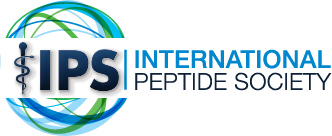What Are Peptide Therapeutics?
And How It Can Impact Your Clinical Care ApproachPeptide therapies are a quickly evolving therapeutic area of medicine with wide-ranging impacts on clinical care and patient health.
Peptides are of particular interest as therapeutic drugs because the body naturally produces many different peptides, this means they are relatively well-tolerated as therapeutics and have fewer side effects.
The majority of naturally occurring peptides bind to cell surface receptors triggering intracellular responses. With over 7,000 peptides that occur naturally in the body, this represents a wide pool of peptides and functions to work with.
Naturally occurring peptides have many different functions from hormones, growth factors, neurotransmitters and more. Therefore, the use of peptides as therapeutics provides a method of targeting a wide range of cells and manipulating their response.
Through cell signaling amino acid sequences, the targeted use of peptides has the potential to rewrite bodily chemistry relationships and build towards regenerative health.
Why Peptide Therapy Matters
Peptide therapies are increasingly playing a significant role in disease state management, performance health, and anti-aging strategies. In clinical practices across the globe, peptide therapies are being used to care for cancer, infectious diseases, metabolic disorders, injuries, aesthetic concerns, and much more.
There are many different prospects for the use of peptide therapeutics. The simplest is peptide replacement. Some diseases are due to the body producing a defunct peptide or not producing it at all, for instance, insulin production in diabetes, therefore simply providing the correct functioning peptides may be a sufficient treatment.
Peptides have continually demonstrated a real impact on health and wellness, and clinicians, industry players, and patients alike have taken notice. Currently, the global peptide therapeutics market is expected to reach $50.6 billion by the year 2026, at a CAGR of 9.0%.

Beyond impressive statistics and proven increases in revenue streams, the use of peptide therapeutics are making long-lasting positive changes in the way clinicians practice medicine and the health outcomes they are able to deliver.
Are Peptides Safe To Use?
Peptides therapies can be safely utilized in clinical practice with the proper training and the latest knowledge surrounding regulatory protocols.
From 2016 through 2020 alone, the pharma market witnessed FDA approval of 14 peptides. These numbers demonstrate that this is a therapeutic area experiencing remarkable growth, and will continue to play a key role in safe and advanced medical care.
And currently, there are nearly 60 peptides that have been approved by the FDA for use in peptide therapy. These peptides have been deemed safe to use in humans as part of a treatment program.
Peptide therapy can be prescribed for either topical, oral or injection routes of administration.
Getting Started:
Each day, more clinicians are making the decision to bring the proven impact of peptide therapeutics into their practice. Are you ready to do the same for your patients?
We are here to help.
